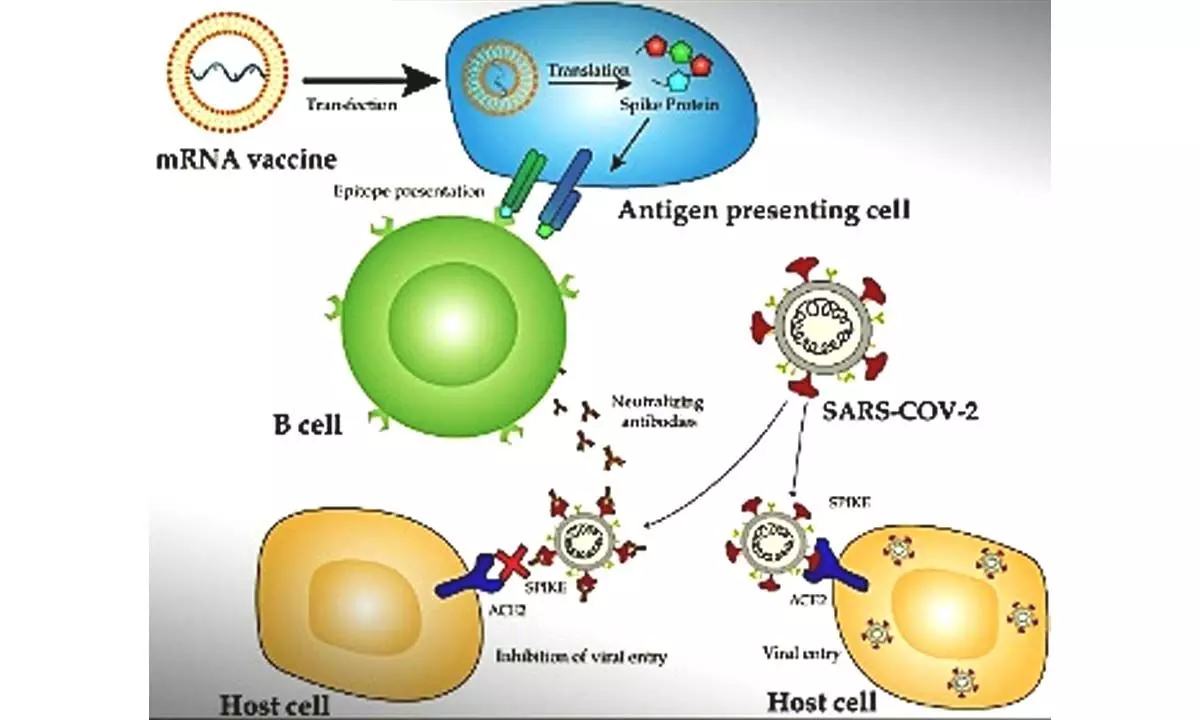Nobel winning mRNA tech publicly funded, not by pharma
Share :

The mRNA vaccine technology against Covid-19, which on Monday received the 2023 Nobel for Medicine was publicly funded and not by pharma giants, said the People's Vaccine Alliance.
New Delhi: The mRNA vaccine technology against Covid-19, which on Monday received the 2023 Nobel for Medicine was publicly funded and not by pharma giants, said the People's Vaccine Alliance.
The People's Vaccine Alliance is a coalition of organisations and activists working together towards equitable access to medical technologies that help to prevent and respond to Covid and future pandemics.
Katalin Kariko and Drew Weissman were jointly awarded the 2023 Nobel Prize in Physiology or Medicine "for their discoveries concerning nucleoside base modifications that enabled the development of effective mRNA vaccines against Covid-19", said the Nobel Assembly at the Karolinska Institutet in a statement.
Their groundbreaking findings have fundamentally changed the understanding of how mRNA interacts with our immune system, the Nobel committee said.
The umbrella group of NGOs hailed public funding, which it said "delivers incredible medical advances", even as pharma giants refused to share vaccine technology, as well as test kits and other diagnostics to low-income countries during the pandemic.
"The award challenges the claim that it was solely big pharmaceutical companies who saved the world from Covid-19," said Mohga Kamal-Yanni, Policy Co-Lead for the People's Vaccine Alliance, in a statement.
"Just like the Oxford-AstraZeneca vaccine, Kariko and Weissman's groundbreaking work on mRNA vaccines received a huge amount of public funding."
Kamal-Yanni also advised governments preparing for the next pandemic to prioritise on public funding as drugmakers will not share vaccines with the world.
"Pharmaceutical companies have refused to share mRNA technologies with developers and researchers in developing countries. Fortunately, Weissman is helping a WHO-backed mRNA programme which aims to develop mRNA technology in lower-income countries, even while pharmaceutical companies refuse to share their know-how," Kamal-Yanni said.
"As governments discuss how to prepare for the next pandemic, they should learn from the story of mRNA. Public funding delivers incredible medical advances and that should be a priority for all countries, but pharmaceutical companies cannot be trusted to share technology with the world."







